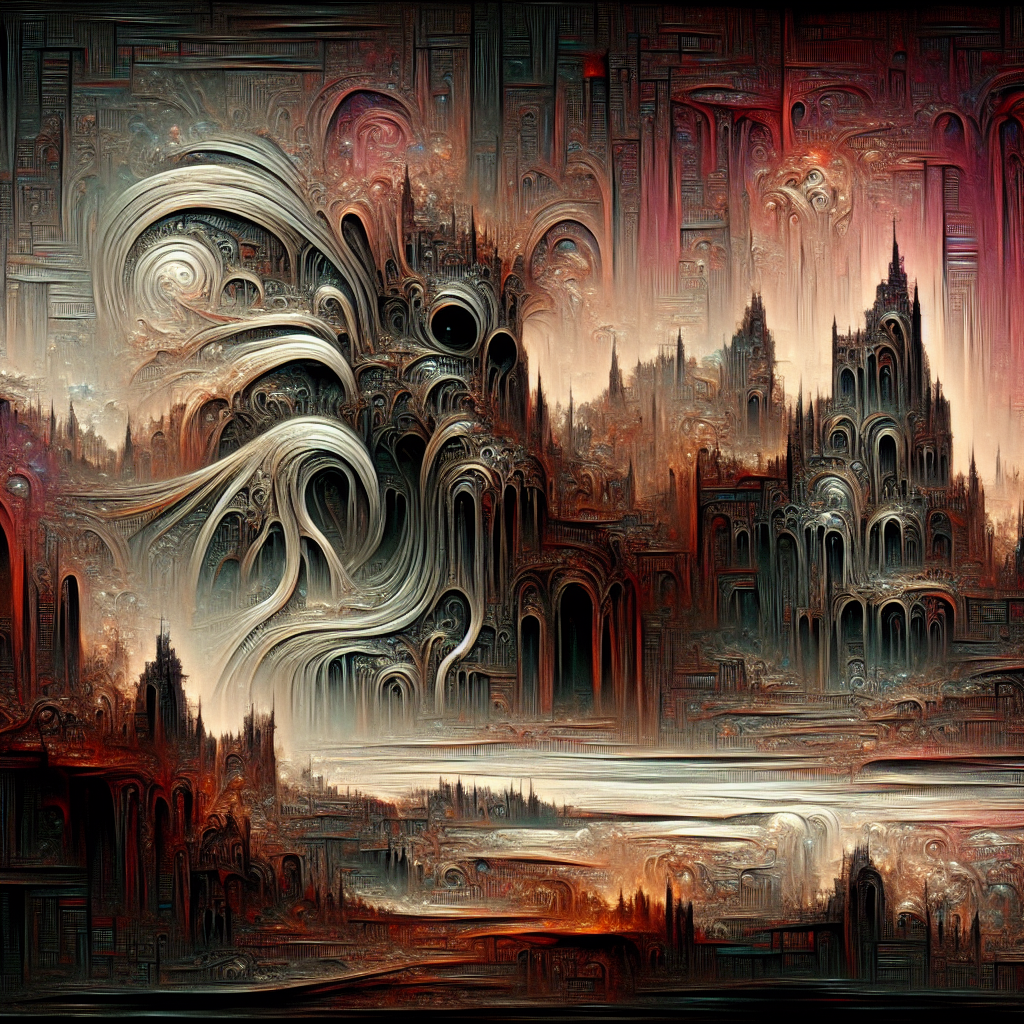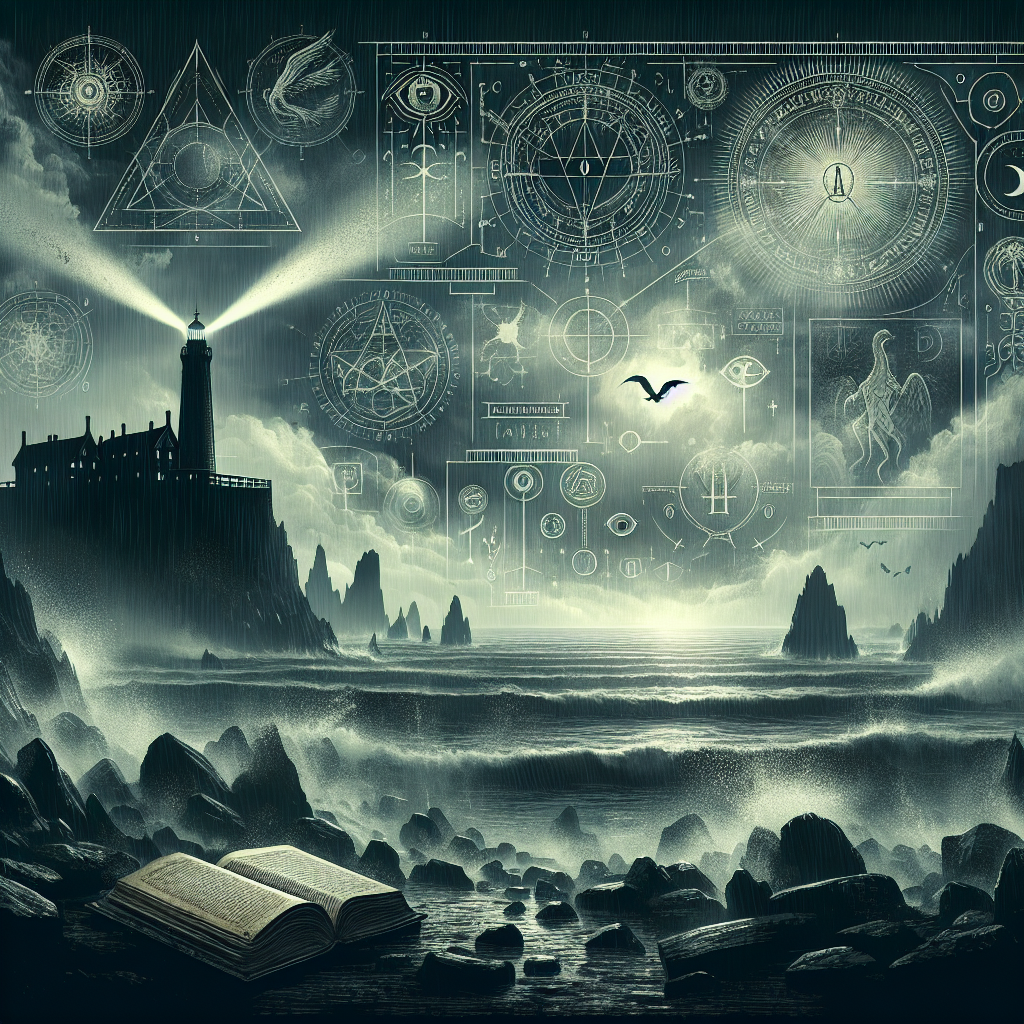# Exploring the Influences of H.P. Lovecraft
H.P. Lovecraft, an American writer active in the early 20th century, is often regarded as one of the most significant figures in the genre of weird fiction. His unique blend of horror, science fiction, and cosmic philosophy has left an indelible mark on literature, film, and popular culture. This article delves into the various influences of Lovecraft, examining his literary legacy, the themes he explored, and his impact on contemporary creators.
## The Literary Legacy of Lovecraft
### A Unique Style and Approach
Lovecraft’s writing is characterized by its dense prose, elaborate descriptions, and a focus on the unknown. His stories often feature protagonists who encounter incomprehensible cosmic entities, leading to existential dread and madness. Some of his most notable works include:
– **”The Call of Cthulhu”**: Introduces the Great Old One, Cthulhu, a cosmic entity that embodies humanity’s insignificance in the universe.
– **”At the Mountains of Madness”**: Explores themes of ancient civilizations and the fragility of human understanding.
– **”The Shadow over Innsmouth”**: Examines the intersection of humanity and the monstrous, highlighting themes of isolation and degeneration.
### Influences on Subsequent Writers
Lovecraft’s influence extends far beyond his own works. Many authors have drawn inspiration from his themes and style, including:
– **Robert E. Howard**: Creator of Conan the Barbarian, who incorporated Lovecraftian elements into his own fantasy narratives.
– **August Derleth**: A contemporary and correspondent of Lovecraft, who expanded the Cthulhu Mythos after Lovecraft’s death.
– **Thomas Ligotti**: A modern writer whose works echo Lovecraft’s themes of cosmic horror and existential dread.
## Themes and Philosophical Underpinnings
### Cosmic Horror
At the core of Lovecraft’s work is the concept of cosmic horror, which emphasizes the insignificance of humanity in the vastness of the universe. This theme resonates with readers and creators alike, as it challenges the notion of human exceptionalism. Lovecraft’s portrayal of ancient, indifferent deities serves as a reminder of humanity’s vulnerability.
### Fear of the Unknown
Lovecraft’s stories often revolve around the fear of the unknown, a theme that continues to captivate audiences. His characters frequently encounter entities and truths that defy comprehension, leading to madness or despair. This exploration of the unknown has influenced various genres, including:
– **Science Fiction**: Works like Arthur C. Clarke’s “Childhood’s End” and Philip K. Dick’s “Ubik” reflect Lovecraftian themes of alien encounters and existential questions.
– **Horror Films**: Movies such as “The Thing” and “Event Horizon” draw on Lovecraft’s ideas of isolation and the incomprehensible nature of the universe.
## Lovecraft’s Cultural Impact
### Influence on Film and Television
Lovecraft’s impact is evident in numerous films and television series that draw from his mythos. Notable examples include:
– **”The Thing” (1982)**: Directed by John Carpenter, this film embodies Lovecraftian themes of paranoia and the monstrous.
– **”True Detective” (Season 1)**: The series incorporates elements of cosmic horror, particularly in its exploration of existential themes and the nature of evil.
### Video Games and Tabletop RPGs
Lovecraft’s influence extends into the realm of gaming, where his mythos has inspired various video games and tabletop role-playing games. Examples include:
– **”Call of Cthulhu” RPG**: A tabletop game that allows players to explore Lovecraft’s universe and confront cosmic horrors.
– **Video Games**: Titles like “Bloodborne” and “Darkest Dungeon” incorporate Lovecraftian themes, emphasizing the struggle against overwhelming odds.
## Conclusion
H.P. Lovecraft’s influence on literature, film, and popular culture is profound and enduring. His exploration of cosmic horror, the fear of the unknown, and the fragility of human understanding has inspired countless creators across various mediums. As we continue to grapple with existential questions and the mysteries of the universe, Lovecraft’s work remains a vital part of our cultural landscape. His legacy serves as a reminder of the power of imagination and the enduring allure of the unknown.

Leave a Reply